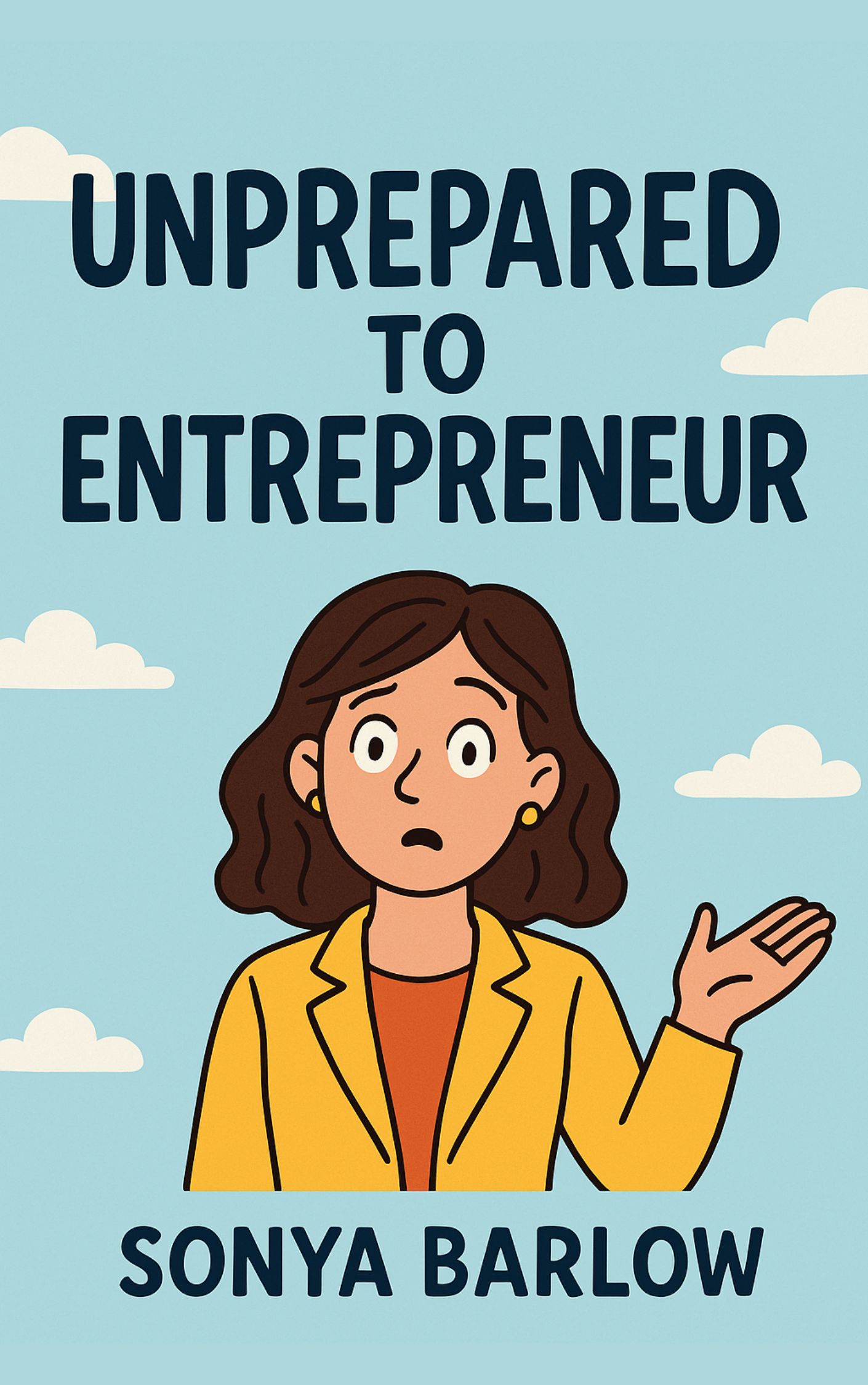Description
Starting a business is often imagined as a polished process, filled with flawless plans and carefully calculated steps. In reality, it is rarely so smooth. Entrepreneurship is messy, unpredictable, and sometimes discouraging—but it is also rewarding, liberating, and deeply human.
Sonya Barlow’s journey into entrepreneurship began without much preparation. She had a business degree, but real-world practice didn’t match the theories she had studied. She wanted to build something of her own but didn’t know where to begin. Instead of waiting until she had the “perfect” plan, she decided to take a different path: she would say yes to opportunities, even if she felt unready. That decision to “strategically wing it” transformed her life.
Her first attempt was far from glamorous. She organized a brunch to launch her idea of creating a supportive network for women in business. She planned every detail—from her outfit to the menu—but when the big day came, no one showed up. Sitting alone at the table, she felt crushed. Yet she didn’t give up. She hosted another event, and then another. Eventually, one person came. Then more. Bit by bit, her community started to grow. That single step of persistence turned into a movement that later became a recognized business.
This shows one of the most important lessons of entrepreneurship: failure is not final unless you stop trying. Every setback can be a stepping stone. You don’t need to have everything figured out; you just need the courage to keep moving.
Another key insight is that business plans don’t need to be overly complicated. Traditional advice says that entrepreneurs must have long, detailed documents before they can even start. But this often holds people back. Instead, a simple outline can work wonders. Begin by asking yourself: What problem do I see? Who has this problem? What solution can I offer? From there, brainstorm freely, even if your ideas sound silly at first. Narrow down the best ones and sketch a short plan that outlines your value, your target audience, and your goals.
At the same time, it’s important to recognize that no plan is perfect. Markets change, people surprise us, and new opportunities appear suddenly. Flexibility and creativity are far more valuable than strict scripts. Being willing to adjust along the way can save you from frustration and keep you open to innovation.
Knowing your customer is another pillar of success. Many entrepreneurs start by imagining a customer who looks just like them, only to later discover that their true audience is much broader. Building a “customer persona”—a simple profile of your ideal buyer—can help you refine your message. Who are they? What are their struggles? Where do they spend their time? This vision will evolve as your business grows, and that’s perfectly fine.
In today’s digital world, no business can thrive without some kind of online presence. Social media is not just for fun; it is a tool for building credibility, connecting with customers, and sharing your story. Sonya herself struggled with this in the beginning. Her first attempt at launching a brand account went poorly—it even got blocked. But she learned from the mistake and tried again, this time with clarity. She told her brand’s story, showed how it solved real problems, and measured success by engagement. Within months, the account flourished.
Consistency is key. A simple system, like planning posts weekly and dedicating a few hours to scheduling content, can help maintain momentum. Beyond the brand account, building your own personal presence matters as well. People trust people more than faceless companies. By sharing your values, vision, and principles on platforms like LinkedIn, you invite opportunities—whether that’s collaborations, speaking engagements, or new clients.
Equally important is the role of networking. Opportunities often come not from public job boards or cold calls, but from relationships. Studies show that most jobs and deals are filled through connections. Think about the people you spend the most time with. Do they support your growth? Do they push you to reach higher? If not, it might be time to expand your circle.
Networking doesn’t have to feel forced. Start small: attend events, comment on posts, send thoughtful messages, and follow hashtags that matter to your business. Over time, build habits like monthly check-ins with top contacts or adding new acquaintances into a system that helps you stay organized. The more you invest in genuine relationships, the more doors will open for you.
But while building a business is exciting, it can also take a toll on your mind. Entrepreneurs often feel imposter syndrome—the sense that they aren’t good enough, that their achievements are undeserved, or that they’ll be “found out” as frauds. This feeling is extremely common, yet rarely talked about. Even successful founders experience it.
Managing these feelings starts with awareness. Ask yourself: what triggers my doubts? Am I a perfectionist, always setting impossible goals? Do I fear asking for help? By identifying your patterns, you can take steps to shift your mindset. One useful method is the “three S’s”: recognize your strengths, recall a success story where you used them, and then ask, “So what impact did that have?” Repeating this exercise helps remind you of your worth.
Beyond imposter syndrome, mental health in general should never be ignored. Burnout is common among entrepreneurs who work long hours and never disconnect. But running yourself into the ground is not a badge of honor—it’s a risk to your health and your business. Healthy habits, such as setting boundaries around work conversations, keeping calls short, and encouraging flexibility, can protect both you and your team. Remember: if you are the founder, your wellbeing directly affects the company’s wellbeing.
At its heart, entrepreneurship is about learning by doing. You don’t need to come from a privileged background or have years of preparation. What you need is openness to opportunities, resilience when things go wrong, and the courage to start even when you feel unready. Every small step matters, and every “yes” you say can lead to something bigger.
One final tool that can help grow your network and confidence is the “3-2-1 rule.” Each month, start three conversations with new people. From those, connect with two more deeply, perhaps on social media. Then, set up one meaningful meeting, like a call or coffee, to build a stronger relationship. Follow this consistently, and over time your network—and your opportunities—will expand.
The path of entrepreneurship is unpredictable, but that is also its beauty. There is no single right way, no perfect formula. What matters most is to begin, to keep going, and to believe that progress is possible even when you feel unprepared.





